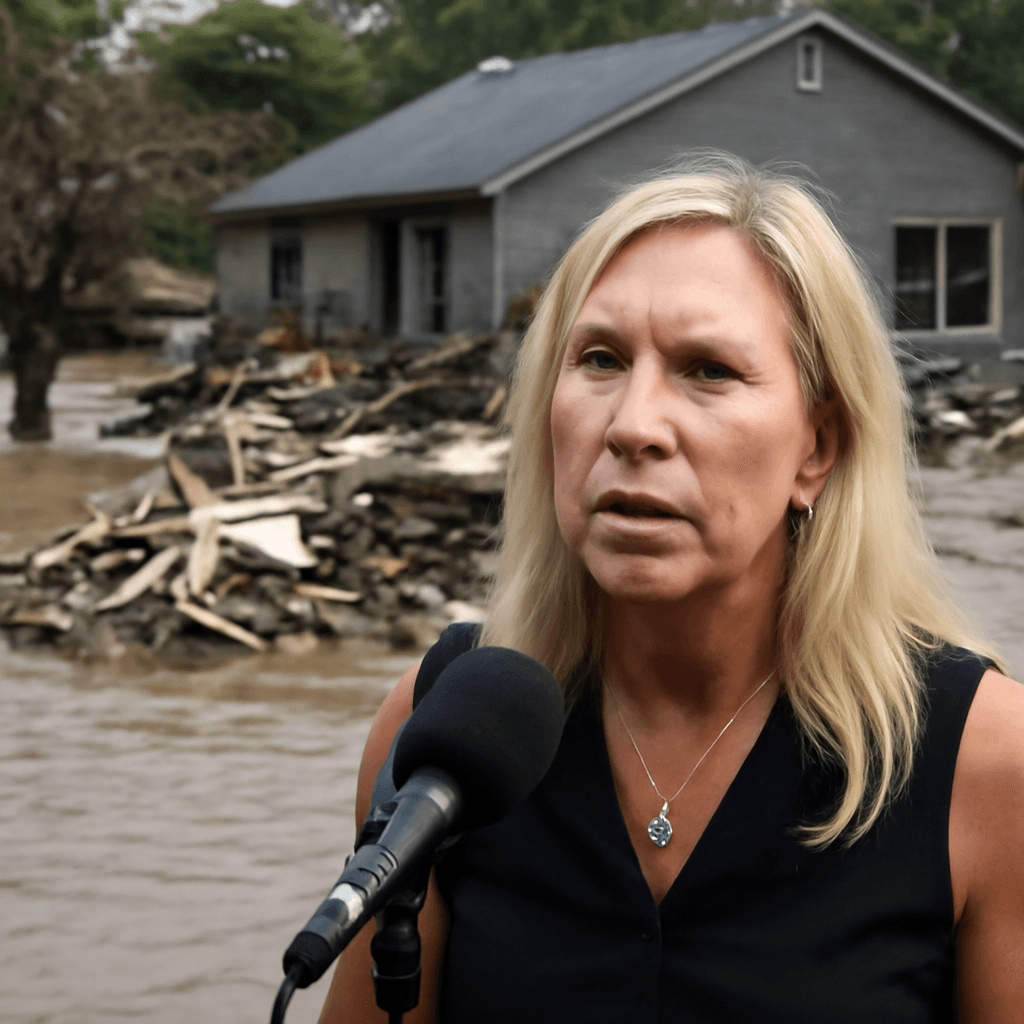Kristi Noem Rebuts New York Times' FEMA Criticism Amid Texas Floods
In the wake of the devastating flash floods that ravaged Central Texas, leaving over 129 people dead and more than 160 missing, Homeland Security Secretary Kristi Noem has strongly rejected a New York Times report accusing the Federal Emergency Management Agency (FEMA) of neglecting emergency calls.
Allegations of Ignored Distress Calls
The New York Times detailed troubling claims that FEMA failed to respond to nearly two-thirds of distress calls during the crisis, raising serious concerns about the federal agency’s disaster response efficiency. However, Secretary Noem dismissed these allegations as politically charged and unfounded.
Noem’s Response: Timing and Political Motives
During an appearance on NBC’s Meet the Press, Noem emphatically stated, “It’s just false.” She voiced her disappointment that, amid such profound human loss and upheaval, some parties have chosen to politicize the tragedy rather than focus on relief efforts.
“The response time was immediate,” Noem asserted, emphasizing that federal agencies mobilized swiftly and effectively. She further criticized the coverage as “inappropriate” and highlighted that FEMA’s response was the most robust seen in many years, contrasting it with prior administrations’ efforts.
Context: Budget Cuts and Operational Challenges
Despite Noem’s defense, critics point to administrative decisions under her leadership that may have hampered FEMA’s capacity. Notably, CNN and other outlets have reported on cost-cutting measures leading to layoffs of hundreds of FEMA call center employees, potentially impacting call handling during emergencies.
Moreover, new bureaucratic policies requiring Noem’s personal approval for contracts or grants exceeding $100,000 have been cited as possible causes for delays in deploying search and rescue teams promptly.
Secretary Noem refuted these critiques, stating she would appreciate transparency from those making accusations and decrying anonymous sources as “attempting to politicize the situation.”
Broader Implications: FEMA’s Future and Federal Disaster Response
Noem also suggested that FEMA, as traditionally structured, requires fundamental reform. She noted, “The president recognizes that FEMA should not exist in the way that it always has been.” According to her, the agency must be “redeployed in a new way,” a strategy already evident in recent operations.
She further underscored that disaster response is a multi-agency federal effort, involving an array of governmental assets beyond FEMA alone, which were actively deployed during the Texas floods.
Political Underpinnings and Noem’s Controversial Standing
Noem’s tenure has often sparked debate, from her handling of immigration enforcement—earning the nickname “ICE Barbie” among detractors—to her current role overseeing emergency management. Her staunch defense of FEMA’s response comes as she faces renewed scrutiny over the administration’s handling of natural disasters.
Expert Insight: Navigating Disaster Response in a Politically Charged Environment
Experts emphasize that disaster management agencies like FEMA operate within complex layers of bureaucracy and politics, especially during crises attracting national attention. Efficient response depends not only on operational readiness but also on clear communication and public trust.
Cost-saving measures, while fiscally prudent, may inadvertently affect frontline responsiveness. Additionally, political narratives often shape public perception, sometimes overshadowing factual timelines and efforts.
Moving forward, genuine reform in disaster response structures must balance fiscal responsibility, rapid deployment capabilities, and transparency to regain and maintain public confidence.
Summary
- Secretary Noem denies New York Times claims that FEMA ignored most emergency calls during Texas floods.
- She attributes criticism to politicization amid a severe humanitarian crisis.
- Critics point to staffing cuts and bureaucratic hurdles under Noem’s leadership as impediments.
- Noem advocates for FEMA’s structural reform and highlights federal-wide resource deployment.
- The episode underscores challenges of disaster response amidst political controversy and operational complexity.
Editor’s Note
The intense scrutiny over FEMA’s handling of the Central Texas floods offers a microcosm of the broader struggles within U.S. disaster response frameworks — balancing rapid, effective action with budget constraints and political pressures. Secretary Noem’s strong rebuttal reflects not just a defensive posture, but raises critical questions about how emergency agencies can evolve to meet 21st-century challenges. As natural disasters increase in frequency and intensity, transparency, accountability, and adaptive reform remain paramount to ensuring that no call for help goes unanswered.



















